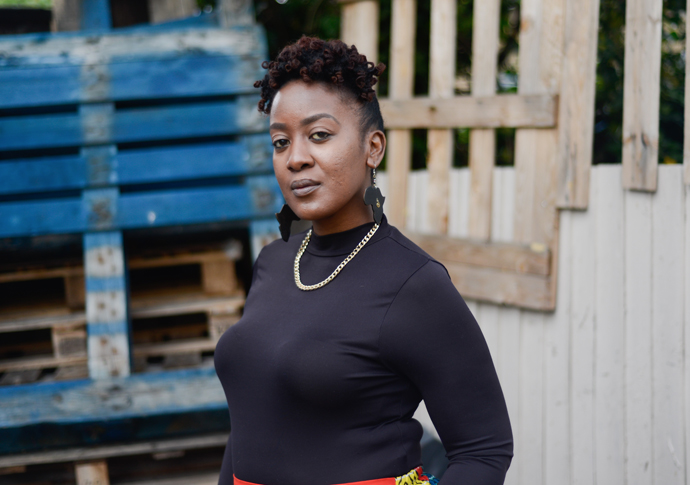Poetry unlocked the doors to prison
Poet Lady Unchained: ‘In my experience, the justice system is racist throughout’
Friday, 26th August 2022 — By Anna Lamche

Lady Unchained
BRENDA Birungi thought her life was over after a fight in a nightclub landed her in Holloway Prison.
But this two-year jail sentence was the start of a long journey that would eventually transform her into Lady Unchained, the poet, campaigner and broadcaster.
She was just 21 when she was sent down for grievous bodily harm in 2009. “Holloway Prison was my first stop,” she told the Tribune. “Getting to Holloway was the point where I thought: my life is over, really over.”
Fear was the overwhelming feeling during those first months behind bars. “I was afraid of the other women,” she said. “I didn’t think I was a violent person.”
She began writing notes to herself partly as a coping mechanism, partly as a way of keeping track of the days. “You have to keep your mind free of voices,” she said. “Holloway Prison was a building full of trauma.”
These notes were very early drafts of the poems that would come to make up Behind Bars, her first collection.
Released this summer, the book reflects on her time in the criminal justice system. She said: “In my experience, the justice system is racist throughout, sexist and corrupt.
“I talk from the perspective of a black woman, but it’s also a working-class issue. I’ve seen lots of working-class white boys in prison.”
Despite being a British passport holder, she said she was transferred from Holloway Prison to a prison for foreign nationals and that her Ugandan heritage was “weaponised” against her. She was threatened with deportation after guards claimed they could not verify her immigration status.
Once she was issued with a “removal date” and told to prepare for departure, she went on hunger strike. Immigration control eventually got involved, vouching for her right to stay in the UK, and she was transferred to a low-security prison in Surrey.
Holloway Prison closed in 2016 but it still casts a long shadow over the lives of those who spent time there.
After experiencing the justice system, Lady Unchained is cynical about its capacity to improve lives. “There’s no such thing as rehabilitation, and sentencing is a mess,” she said.
Those with long sentences often have difficulty accessing training and education opportunities until the end of their time in prison, she said. “It’s a huge waste of time and a huge waste of tax money. That money could be reinvested into community support.”
She would like to see opportunities for community rehabilitation and more help for those leaving prison.
“I saw so many women being released and returning again,” she said. “I remember being really annoyed at these women who kept coming back. Later on I realised all the reasons women were returning, why it was so easy to come back.
“Life outside was so confusing. I had a new title – I was an ‘ex-offender’. Something happens in prison that makes you think it’s safer for you to be there.”
Since leaving, the poet has spent her time trying to prove there is “life after prison” by writing, giving talks and running a show on National Prison Radio.
“I’ve managed to build a life after prison, to show [others] that there can be life after prison. Our art can open doors,” she said.
A Ministry of Justice spokesperson said: “Our priority is to make prisons places of security and rehabilitation to help offenders turn their lives around, move away from crime and make our streets safer.
“Our approach is working and over the last year the proportion of ex-offenders in work six weeks after release increased by more than half. We are also working hard across government to tackle the deep-rooted causes of racial disparity in the justice system.”